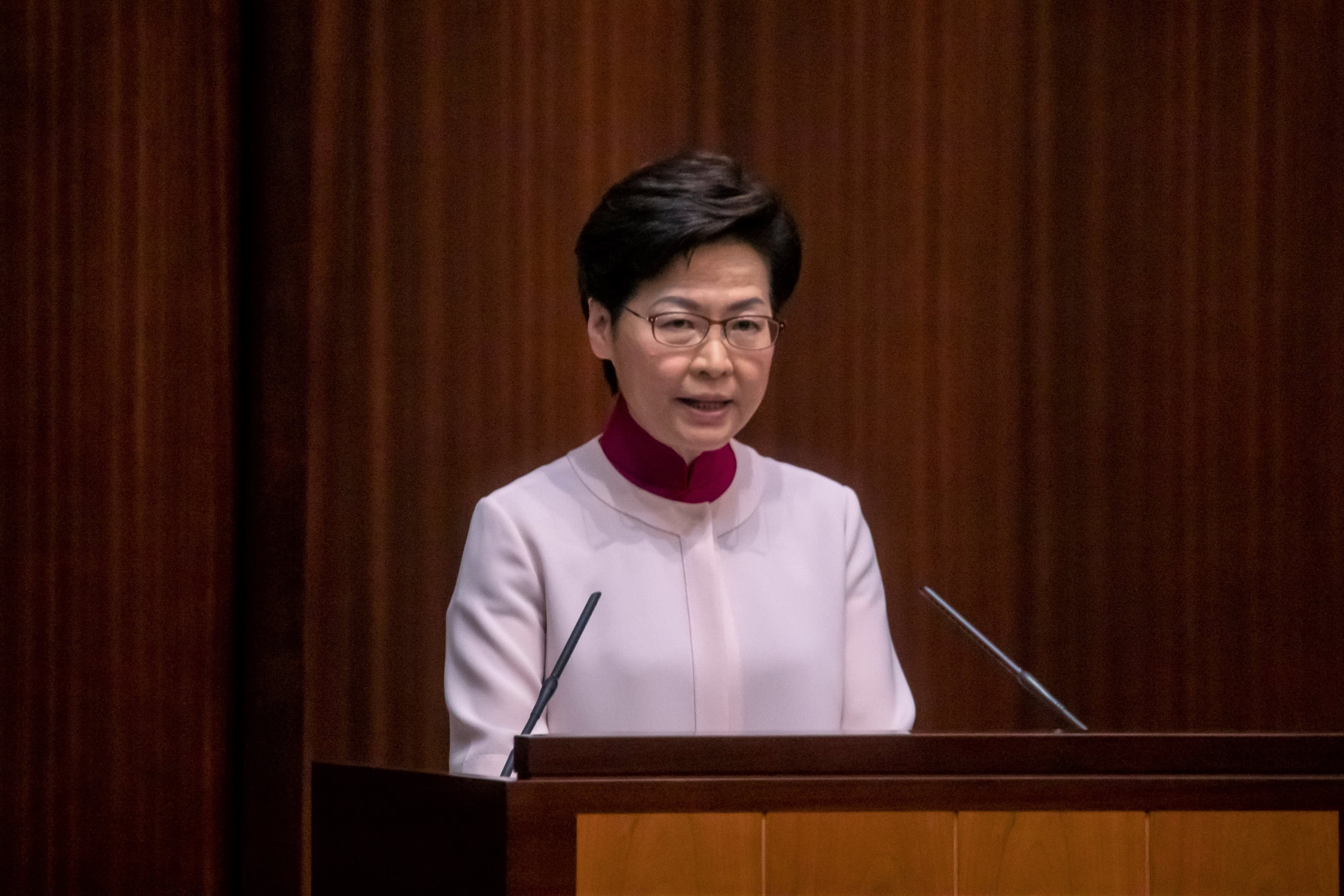
Carrie Lam, Hong Kong’s chief executive, delivers her policy address at the Legislative Council in Hong Kong, China, on Wednesday, Oct. 6, 2021.
Paul Yeung | Bloomberg | Getty Images
“With the implementation of the National Security Law and improvement to our electoral system, chaos has ended and social order has been restored,” she said, according an official English translation of her remarks. “We are now embracing a new era where we can focus on economic development.”
She reiterated that point several times during her two-hour long speech.
Her 2019 address was “disrupted and paralyzed” by “anti-China” opposition lawmakers, Lam said.
This was Lam’s final policy address in her current term as chief executive. Hong Kong’s next chief executive election is due to take place in March next year.
Hong Kong, a former British colony that was handed over to China in 1997, was promised autonomy for 50 years.
The Chinese financial hub is governed under the “one country, two systems” framework and has freedoms that other Chinese cities do not have, such as limited election rights and a largely separate legal and economic system.
‘Back on track’
Lam touted Wednesday’s calm policy speech as a “clear manifestation that the Hong Kong [Special Administrative Region] has got back on the right track of ‘one country, two systems.'” She praised the national security law and electoral reforms under pro-Beijing lawmakers in the city for the “timely curb on the chaos in the city.”
“Any accusation that these two major initiatives of the central government have undermined ‘one country, two systems’ is nonsense and groundless,” she said.
It can be seen that our business environment has not been undermined by the impact of the pandemic and the biased reports of Hong Kong’s situation by certain Western media.
Carrie Lam
Hong Kong Chief Executive
The chief executive claimed initial concerns about the national security law among businesses have “notably subsided” and that firms are now most concerned about Covid restrictions on cross-border travel.
A May survey by the American Chamber of Commerce in Hong Kong found that 42% of its members who responded are considering leaving the city, and the “most widely shared concern was discomfort” due to the national security law.
Lam said the number of business operations in Hong Kong with parent companies overseas or in the mainland reached all-time highs this year, as did the number of start-ups in the city.
“It can be seen that our business environment has not been undermined by the impact of the pandemic and the biased reports of Hong Kong’s situation by certain Western media,” she said without naming them.
Land, housing development
Separately, Lam proposed developing an area in the north of Hong Kong into a metropolis for residential and industrial use.
It could be a hub for innovation and technology, and help Hong Kong and Shenzhen’s development, she said.
Current plans indicate that 350,000 residential units could be created in this Northern Metropolis, with the potential for another 186,000 more units.
The Hong Kong leader also provided updates on the government’s housing policy for Hong Kong, which is one of the most expensive residential property markets in the world.
“Providing decent accommodation for all is the primary goal of my housing policy,” Lam said in her speech, noting that the long waiting time for public rental housing allocation is “worrying.”
Source: CNBC
